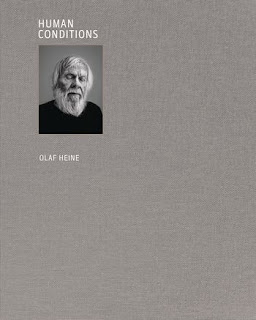Wednesday, 28 December 2022
Wednesday, 21 December 2022
Prague, the photo capital of the world
When I visited Prague in late November 2022, the city was full of tourists who took photos of historic buildings and other impressive landmarks. Since I did not feel like competing with what PR-professionals are good at, I decided to concentrate on what I could spot by the side of the road. This is how the above pic came about.
I do not recall to have come across as many photo shops and gallerys as in Prague – it surely must be the photo capital of the world. The first store I wandered in by sheer accident was Centrum Foto Skoda, a place filled with used and new cameras, camera bags, filters, special bulbs, tripods, a repair facility, postcards and photo books.
When I asked the assistant manager whether he could recommend a photo exhibition nearby, he informed me that communist totalitarianism of forty years had been replaced by money totalitarianism – and that the result was, well, what would I expect?
Was I interested in Czech photography? He showed me photobooks by photographers that apart from Josef Sudek I had never heard of. Jaroslav Kucera, Jan Reich, Miroslav Kubes, Daniel Sperl, Frantisek Dostal. The Prague impressions by Dostal turned out to be one of the best composed photo tomes I have ever laid eyes on.
We talked about whether photos need words or whether they should be able to speak for themselves. Interestingly enough, only the previous day I had come across a quote from myself on a Finnish website that read Most photographs do not work without an explanation.
Photographers who think otherwise are in my view people who are a bit cheap: They throw images at you as if to say Do with them as you please! Needless to say this is fine for me as long as you do not expect me to be interested in your motives – if you've had any in the first place, that is.
In my view, most people (and that includes photographers) do not know why they do what they do. Our rationalisations are done in hindsight. Sudek, the assistant manger at Centrum Foto Skoda said when putting one of his books in front of me, is all about harmony. With this in mind I do appreciate his images even more.
Wednesday, 14 December 2022
The Importance of Background
Wednesday, 7 December 2022
Olaf Heine: Human Conditions
Wednesday, 30 November 2022
Nacht in Caracas
Wednesday, 23 November 2022
Wandern zwischen den Welten
Wednesday, 16 November 2022
Die Evolution der Sprache
Wednesday, 9 November 2022
How the media stabilise our society
One of the often-overlooked functions of mass media is to stabilise our society. They do that, for instance, by presenting formats that show the exchange of arguments as the normal way to deal with pretty much all issues imaginable. What they do not show is that you cannot argue with nature, the law of gravity or with Putin, Orbán, Erdoğan or Trump (to name just a few).
Rarely has this stabilising factor been more obvious than after the death of Queen Elizabeth II. Would the transition to Charles be accepted by the public? Nobody seemed to doubt it. The elaborate and largely incomprehensible ceremony that proclaimed him Charles III followed many very, very strange rules. No questions were asked by the subservient media, critical inquiry was totally absent.
For most of my life, I was convinced that a well-informed public is the best guarantee against dictators. Nowadays, I'm not so sure about that. The majority of the British electorate knew that Boris Johnson was a serial liar, many Americans who voted for the Mafia-guy from Queens knew that he wasn't telling the truth. Yet this knowledge did not make any difference, it did not influence their choices and their subsequent actions.
The idea that we decide consciously what is good for us is a myth. Education that aims at making people better informed as well as media-literate won't change much for the better. Instead, it will perpetuate what is already there. How come? Because we can't bear reality (when Woody Allen was asked what his relationship with death was, he said: "I'm strongly against it.") and so we constantly distract ourselves — with politics, sports, the royal theatre, with basically pretty much everything.
The Buddhists think that our brains are wrongly wired. We know that everything is impermanent, that everything is constantly changing. Instead of accepting this, we look for certainty — for this is what our survival instinct, that dominates all other instincts, is demanding. In other words, we are most of the time incapable of doing what we know we should be doing — for we have other priorities.
As Sigmund Freud famously said: Man is not master in his own house. The idea that we have of ourselves — that we are conscious human beings who know what we do — is a joke at best. As Richard Feinman once said in regards to physics: The first principle is not to fool yourself. And, you are the easiest person to fool.
For the full text, go here
Wednesday, 2 November 2022
Jimmy Chin: Bilder aus einer Welt der Extreme
Wednesday, 26 October 2022
Schöner Denken
Wednesday, 19 October 2022
Das Leben der Bilder und Die Kunst des Sehens
Wednesday, 12 October 2022
"Along the color line"
Wednesday, 5 October 2022
50 Fragen an die Kunst
Wednesday, 28 September 2022
At 69 years of age
Wednesday, 21 September 2022
In der Plattformfalle
In Sachen Alkohol ist das ein Ansatz, der meist nur Nicht-Alkoholikern möglich ist. Und beim Internetnutzen? Da wir fast schon dazu gezwungen werden, das Internet zu nutzen, bleibt uns kaum was anderes übrig, als der überlegte Gebrauch. Geert Lovink sagt viele gescheite Sachen, zitiert viele differenziert argumentierende Leute – mir kam es manchmal so vor, als ob man mit dem Verstand zudecken würde, dass wir uns weder ändern wollen noch können. Grundsätzlich meine ich. Ein bisschen geht schon, als Alibi.
Das Leben vor dem Bildschirm laugt uns aus, erschöpft uns. Warum ist das so?, fragt Geert Lovink und führt viele erhellende Meinungen an, aber auch ausgesprochen Banales. „Wie Caroline Cowles Richards sagt: 'Was nicht geheilt werden kann, muss ertragen werden.'“. Da ich nicht wusste, wer Caroline Cowles Richards ist, habe ich sie gegoogelt: Sie lebte von 1842-1913 und war ein Civil War Civilian and Diarist. Autor Lovink zeigt also, wie gebildet er ist. Er tut das übrigens etwas gar oft. „Das Internet ist der Friedhof der Seele. In Anlehnung an einen Satz von Cioran könnte man sagen, dass niemand in den Sozialen Medien das findet, was im Leben verloren gegangen ist.“ Das wissen die meisten wohl auch ohne Cioran.
Die Bezugnahme auf Berühmtheiten wie Fernando Pessoa und Walt Whitman, die lange vor der Internet-Zeit lebten, weist auch darauf hin, dass die grundsätzlichen Phänomene unseres Zeitalters sich nicht von früheren Zeiten unterscheiden, da sie in der conditio humana begründet sind. Dazu gehört das Frankenstein-Phänomen, das sich auch als Internet-Phänomen zeigt: Wir schaffen etwas, das eine Eigendynamik entwickelt und uns entgleitet.
Dass die Digitalisierung unser aller Leben verändert, ist allen klar. Detailliert und anhand vieler Beispiele bringt Geert Lovink die zahlreichen Gedanken einschlägig damit Befasster auf den neuesten Stand. Das ist gut geschrieben, ansprechend dargestellt, auch wenn die Antwort auf die Kernfrage „Und jetzt, was sollen wir tun?“ dieselbe ist, die das kontrollierte Trinken der Abstinenz vorzieht: „Vorsicht vor der Falle der europäischen Offline-Romantik. Lasst uns stattdessen virtuelle Meetings wieder zur Ausnahme machen. Zuerst sollten wir virtuelle Konferenzen zum Gegenstand der Debatte und des globalen Dialogs machen.“ So klingen Pädagogen und Politiker.
Trotzdem: In der Plattformfalle lohnt, weil es die verschiedenen Denkansätze, die sich mit Plattformen und dem Internet auseinandersetzen, sehr schön aufzeigt. Dann aber auch, weil die vielfältigen und zumeist anregenden Erwägungen sich an der Lebenswirklichkeit orientieren. „Hightech kann nicht einfach nur existieren, sondern steht immer kurz vor dem 'Nichtfunktionieren' – der Akku stirbt, die Internetverbindung fällt aus, das Software-as-a-Service-Abonnement fällt aus.“
In der Plattformfalle ist auch ein erfreuliches no-nonsense Buch, das einleuchtend für die Zerschlagung von Monopolplattformen und den Ausschluss von Google, Facebook und anderen Unternehmen aus Internetgovernance-Gremien plädiert. Nur eben: „Dopamingesteuerte, impulsive Nutzer:innen sind dafür bekannt, dass sie die von Habermas aufgestellten Regeln nicht kennen und nicht mit langen Stunden belästigt werden können, die eine Vollversammlung dauert, um einen Konsens zu erreichen.“ Es ist nicht zuletzt diese erfrischend realistisch nüchterne Sicht der Dinge, die dieses Buch auszeichnet.
Geert Lovink
Plädoyer für die Rückeroberung des Internets
transcript Verlag, Bielefeld 2022.





















.jpg)



















